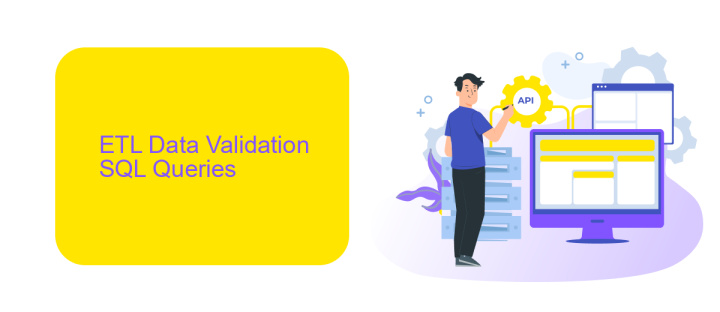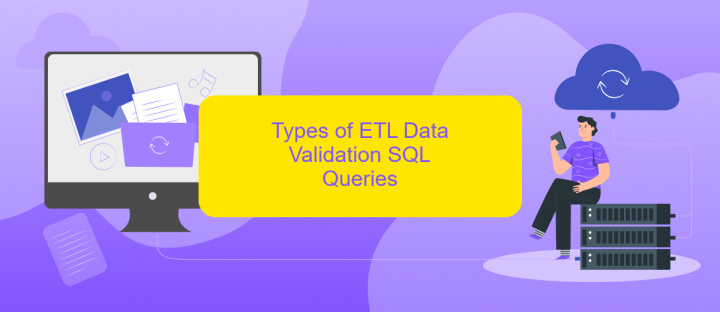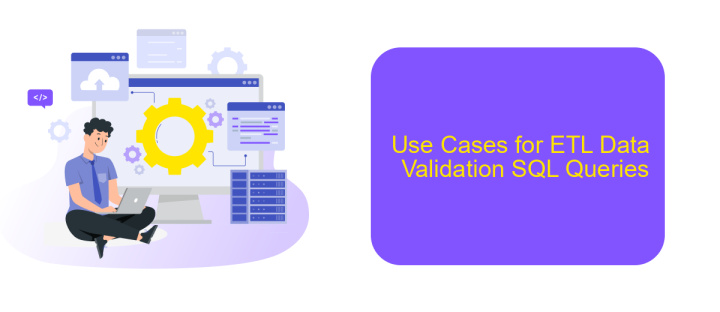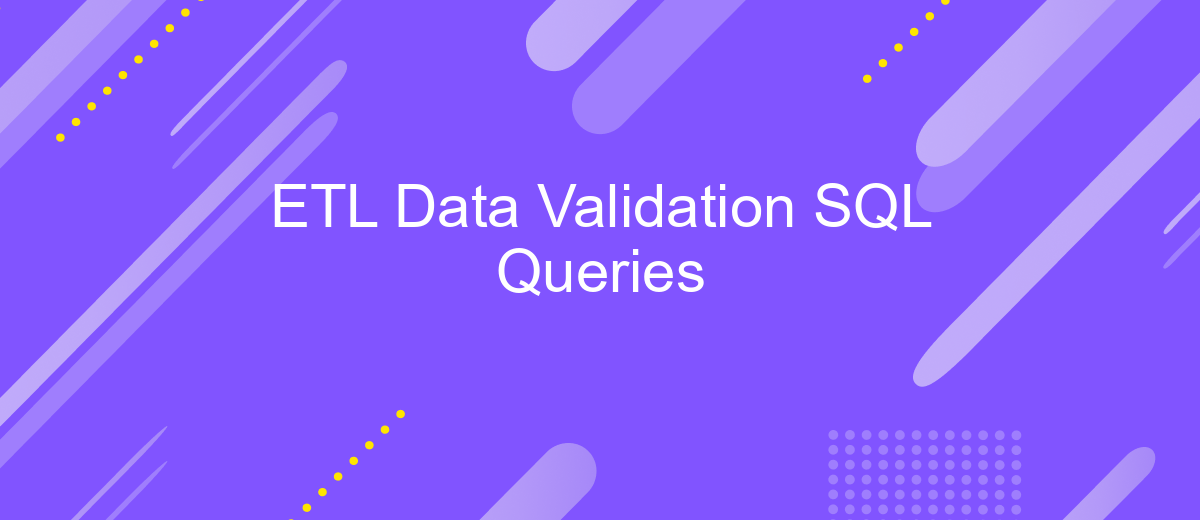ETL Data Validation SQL Queries
In the realm of data warehousing and business intelligence, ETL (Extract, Transform, Load) processes play a crucial role in ensuring data accuracy and integrity. ETL data validation using SQL queries is essential for verifying that data has been correctly extracted, transformed, and loaded into the target system. This article explores key SQL queries and techniques for effective ETL data validation.
Introduction
ETL (Extract, Transform, Load) processes are crucial in data warehousing and analytics, ensuring that data is accurately transferred from source systems to data warehouses. Validating this data with SQL queries is essential to maintain the integrity and reliability of the data. This process involves checking data completeness, accuracy, and consistency to ensure that the ETL pipeline functions correctly.
- Data Completeness: Ensuring all expected data is loaded.
- Data Accuracy: Verifying that the data matches the source.
- Data Consistency: Checking that data is uniformly represented across the system.
Effective ETL data validation not only identifies errors but also helps in optimizing the ETL process. Tools like ApiX-Drive can automate integrations and streamline the validation process, providing a robust solution for maintaining data quality. By leveraging these tools, organizations can ensure their data-driven decisions are based on reliable and accurate information.
ETL Data Validation SQL Queries

ETL data validation is crucial to ensure the accuracy and integrity of data as it moves through the ETL pipeline. SQL queries are commonly used to validate data at various stages of the ETL process. These queries can check for data completeness, consistency, and accuracy by comparing source and target data, verifying data types, and ensuring that constraints are met. By running validation queries, you can detect and address discrepancies early, thereby maintaining data quality and reliability.
To streamline the integration and validation process, services like ApiX-Drive can be utilized. ApiX-Drive offers a user-friendly interface to set up and manage integrations without extensive coding. It supports a wide range of data sources and destinations, making it easier to automate data flows and apply validation rules. By leveraging ApiX-Drive, you can enhance your ETL process, ensuring that data is accurately validated and seamlessly integrated across various platforms.
Types of ETL Data Validation SQL Queries

ETL data validation is crucial to ensure data accuracy and integrity during the extraction, transformation, and loading processes. There are various types of SQL queries used to validate ETL data, each serving a specific purpose in maintaining data quality.
- Row Count Validation: This query compares the number of rows in the source and target tables to ensure that all records have been transferred correctly.
- Data Type Validation: This type checks that the data types in the source and target tables are consistent, preventing data corruption.
- Uniqueness Validation: This query ensures that unique constraints and primary keys are maintained, preventing duplicate records.
- Range and Constraint Validation: This type verifies that data values fall within the expected ranges and adhere to predefined constraints.
- Transformation Logic Validation: This query checks that the transformation rules have been applied correctly, ensuring the data is in the desired format.
Implementing these validation queries helps in maintaining high data quality and reliability in ETL processes. Tools like ApiX-Drive can further streamline the integration and validation processes, ensuring seamless and accurate data flow between systems.
Use Cases for ETL Data Validation SQL Queries

ETL (Extract, Transform, Load) data validation is crucial for ensuring data accuracy and reliability in data warehousing and business intelligence systems. SQL queries play a vital role in validating data at various stages of the ETL process, helping to identify and rectify data inconsistencies and errors.
One common use case for ETL data validation SQL queries is in the initial data extraction phase. Here, SQL queries can be used to verify that all required data has been extracted correctly from the source systems. This includes checking for missing values, duplicate records, and data type mismatches.
- Data completeness checks
- Data consistency verification
- Data transformation validation
- Data load accuracy
Another important use case involves validating data transformations. SQL queries ensure that data transformations, such as calculations, aggregations, and data type conversions, are performed correctly. Additionally, during the data load phase, SQL queries can confirm that data has been loaded accurately into the target systems. For seamless integration and automation of these processes, tools like ApiX-Drive can be utilized to streamline data workflows and enhance validation efficiency.
- Automate the work of an online store or landing
- Empower through integration
- Don't spend money on programmers and integrators
- Save time by automating routine tasks
Best Practices for Writing ETL Data Validation SQL Queries
When writing ETL data validation SQL queries, it is essential to ensure clarity and maintainability. Start by using descriptive names for tables, columns, and variables to make your queries self-explanatory. This practice helps other developers understand the logic without extensive documentation. Additionally, always include comments to explain complex logic or calculations, which will be beneficial during future updates or debugging sessions.
Another best practice is to modularize your queries by breaking them into smaller, reusable components. This can be achieved by creating views or common table expressions (CTEs) for repetitive logic. Additionally, consider using tools like ApiX-Drive for automating data integration and validation processes, which can save time and reduce errors. Regularly test your queries with different data sets to ensure they handle edge cases and maintain data integrity across various scenarios. Lastly, always validate the output against expected results to confirm the accuracy and reliability of your ETL process.
FAQ
What is ETL data validation?
Why is data validation important in ETL processes?
What are some common SQL queries used for ETL data validation?
How can automation tools help in ETL data validation?
What are some best practices for ETL data validation?
Apix-Drive will help optimize business processes, save you from a lot of routine tasks and unnecessary costs for automation, attracting additional specialists. Try setting up a free test connection with ApiX-Drive and see for yourself. Now you have to think about where to invest the freed time and money!


